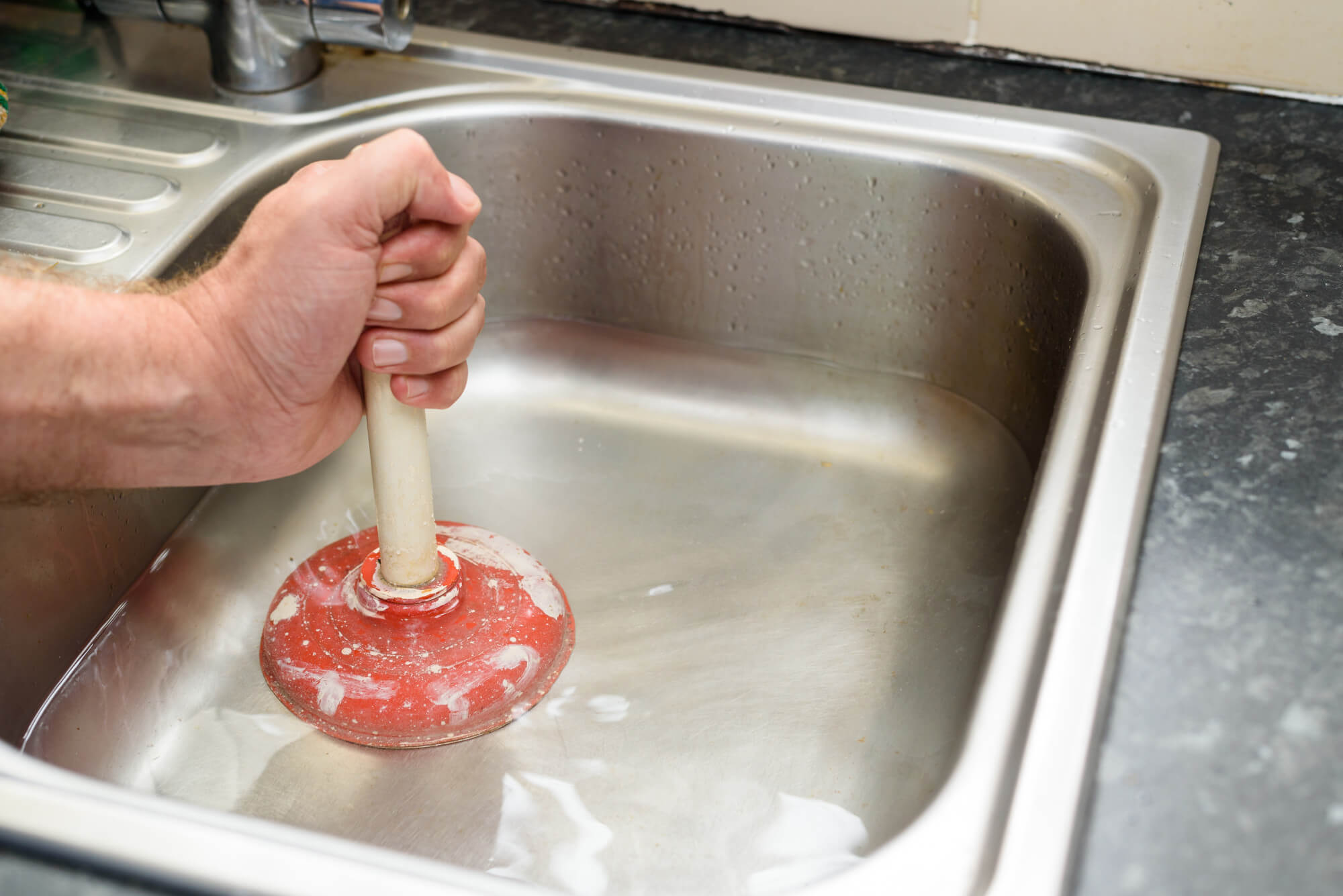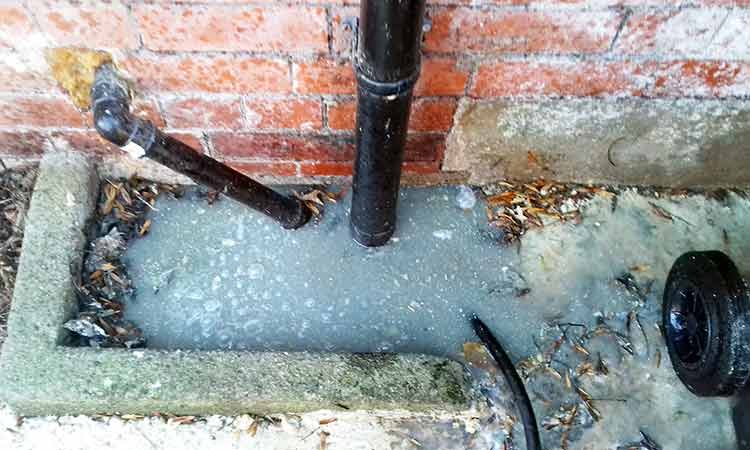Guidelines for Fixing a Blocked Drain Before Seeking Plumbing Experts
Guidelines for Fixing a Blocked Drain Before Seeking Plumbing Experts
Blog Article
Here below you can discover additional great ideas on the subject of 8 Tips For Clearing A Blocked Drain.

Introduction
Dealing with a blocked drainpipe can be a discouraging experience, disrupting day-to-day tasks and potentially causing damages to your building. Nevertheless, before reaching out to pipes specialists, there are actions you can require to attend to the concern yourself. In this guide, we'll explore do it yourself options and safety nets to take on a blocked drainpipe properly.
Determining the Problem
The very first step in attending to a blocked drainpipe is identifying the indications. Slow-moving drain, gurgling audios, foul odors rising from drains, or water support up prevail indicators of a blocked drain. Determining these indicators early can help stop further problems.
Selecting the Right Plumbing Service
When choosing a plumbing service, think about aspects such as experience, licensing, and client evaluations. Select a reliable plumbing professional with a record of high quality craftsmanship and transparent pricing practices.
Price Factors to consider
The expense of expert drain cleaning services can differ relying on the extent of the obstruction and the plumber's rates. Demand quotes from numerous suppliers and inquire about any type of service charges to make sure transparency and stay clear of shocks.
Security Precautions
When attempting DIY drain cleaning, prioritize security. Use protective handwear covers and eyewear to stay clear of contact with hazardous chemicals or germs. Never ever mix different drainpipe cleaning items, as this can produce dangerous fumes.
Instance Researches
Real-life examples illustrate the effectiveness of do it yourself remedies and the importance of prompt professional treatment in dealing with drainpipe clogs.
Typical Sources Of Obstructed Drains
Understanding the elements that contribute to drain obstructions is crucial for effective resolution. Typical perpetrators include hair, soap scum, oil, food particles, and international things like hygienic products or paper towels. Tree origins invading underground pipelines can also cause significant blockages.
Do it yourself Solutions
For minor obstructions, numerous DIY services can be efficient. Putting boiling water down the drainpipe can help dissolve oil and particles. Baking soda and vinegar or a mix of salt and baking soft drink can work as all-natural cleaners. Making use of a plunger or pipes snake to displace obstructions is an additional option.
Tools and Devices
Having the right devices available can make DIY drainpipe cleansing a lot more reliable. A plunger is a versatile device for getting rid of blockages in sinks, bathrooms, and showers. A pipes serpent or auger can get to deeper obstructions, while drain cleaning chemicals can be utilized cautiously for persistent blockages.
Preventive Measures
To prevent future blockages, adopting safety nets is critical. Mount drain guards or filters to catch hair and particles before they go into the pipes. Consistently flush drains pipes with warm water to liquify oil accumulation, and stay clear of dealing with oil or solid waste down the tubes.
When to Call a Specialist
While do it yourself solutions can settle small obstructions, specific indicators suggest the demand for professional support. Consistent blockages, foul odors in spite of cleaning initiatives, or several drains supporting concurrently are red flags that require professional treatment.
Verdict
By adhering to the pointers laid out in this guide, you can properly take on obstructed drains and prevent future plumbing problems. Whether selecting do it yourself remedies or looking for professional help, timely action is key to keeping a healthy and balanced plumbing system and preserving the honesty of your home.
How to Clear a Clogged Drain Yourself (And When to Call In the Professionals)
What Can Clog a Drain
Dirt Skin flakes Hair Grease Soap scum Food Offset pipes Tree roots Small objects Mineral buildup DIY Tricks to Unclog a Drain
You can fix this! Once you have identified the source of the clog (or have a vague idea), you can try one or a combination of these fixes in order to clear your plumbing.
Wire Hanger or Snake
Untangle and clear out hair from a drainpipe with a homemade snake. Use a straightened-out wire hanger with a 90-degree angle hook to locate the clog and drag out any unwanted material.
Remember not to push the clog further down to where the wire hanger cannot reach! If you need to follow up with a plunger, give it a try. Your efforts might be more successful after it’s been wire-snaked.
If you want to get fancy and don’t have a wire hanger to spare, head to the store and pick up a hand-operated drain snake. You can get one for $10-$30. It may save you the hassle, and provide additional length to reach deep into the clogged pipe.
Plunger
A cup plunger has a suction cup attached to a wooden handle. The rubber creates a seal around the drain, and increases the pressure force of the plunger.
Plunge for 30-second increments to loosen the clog. This may need to be repeated over the course of 15-20 minutes. Once plunged, run the water to flush the remaining material out of the drain.
Remember– never use a plunger if you have used a chemical drain cleaner. These chemicals can splash up from the force of the plunger and cause serious injury or burns.
Boiling Water
Hot water can sometimes break up materials into a flushable amount. Dirt, grease, and soap buildup requires heat in order to unstick from surfaces.
Take your kitchen kettle and heat your water to a boil. Once it reaches a rolling boil, pour it directly down the drain into the blockage. Carefully follow with plunging, if necessary.
Don’t worry if this takes more than one try! It can often take multiple kettles and repeated plunging in order to clear a particularly stubborn clog.
Chemical Drain Cleaner
As a last resort, pick up a bottle of chemical drain cleaner. Drain-cleaning chemicals are potent, and not very good for the environment.
You may need to wear protective eyewear in gloves before handling your bottle of chemical drain cleaner. Follow the instructions printed on the bottle, and flush with water as soon as the instructions allow. Do not follow with plunging.
Baking Soda and Vinegar
As a safer alternative to chemical drain cleaner, baking soda and vinegar can create a chemical reaction that clears tough clogs.
Combine one cup of cleaning vinegar with one cup of boiling water, and set aside. Once you have done this, pour half a cup of baking soda down the drain. Give the baking thirty seconds to settle and cover a large portion of the problem drain.
Following the baking soda, pour down your vinegar and hot water solution. Once the vinegar and baking soda combine, the mixture will bubble and fix. Let this reaction fizzle in the drain for about an hour.
After an hour, follow with a kettle’s worth of hot water. The heat and liquid should flush out any remaining material.
When to Call a Plumber
If your DIY attempts haven’t cleared your clog drain, it’s time to call in a professional. It’s not worth losing access to your kitchen sink or high-traffic bathroom. A clog in a vital area can keep you from the things you’d rather be doing, and derail your routine.
Anytime a clog is causing water to spread is a time to call in a plumbing service. What starts out as a little bit of water can quickly grow into serious, expensive water damage.
Additionally, a serious clog can result in burst pipes or serious leaks. Make sure you know when to take it seriously!
https://myguysnow.com/how-to-clear-a-clogged-drain-yourself-and-when-to-call-in-the-professionals/

Do you appreciate reading up on ? Write a remark down the page. We would be pleased to listen to your opinion about this write-up. We hope to see you back again in the near future. Do you know about another individual who is curious about the topic? Be sure promote it. Thanks a bunch for being here. Kindly pay a visit to our site back soon.
Book With Us Today! Report this page